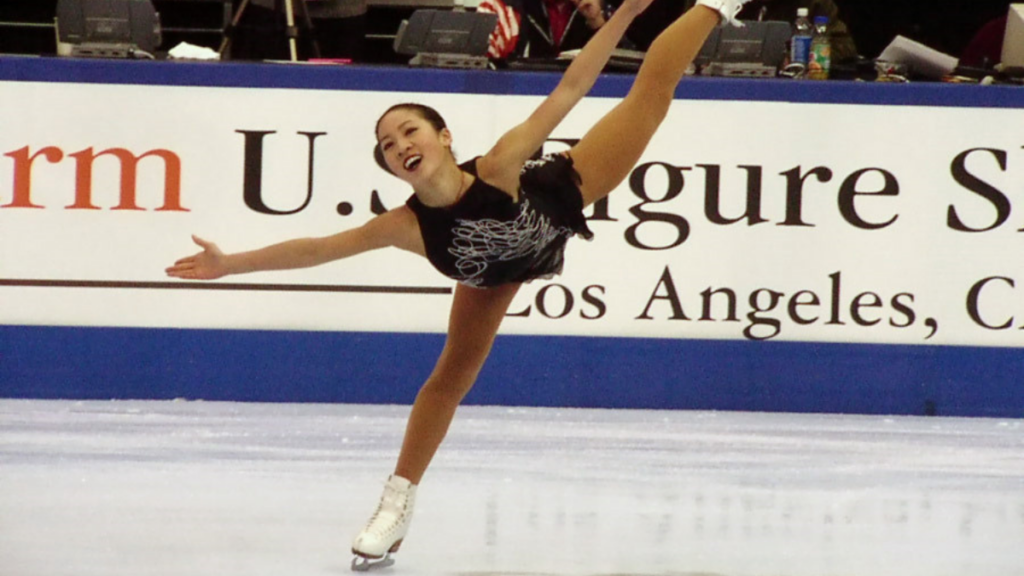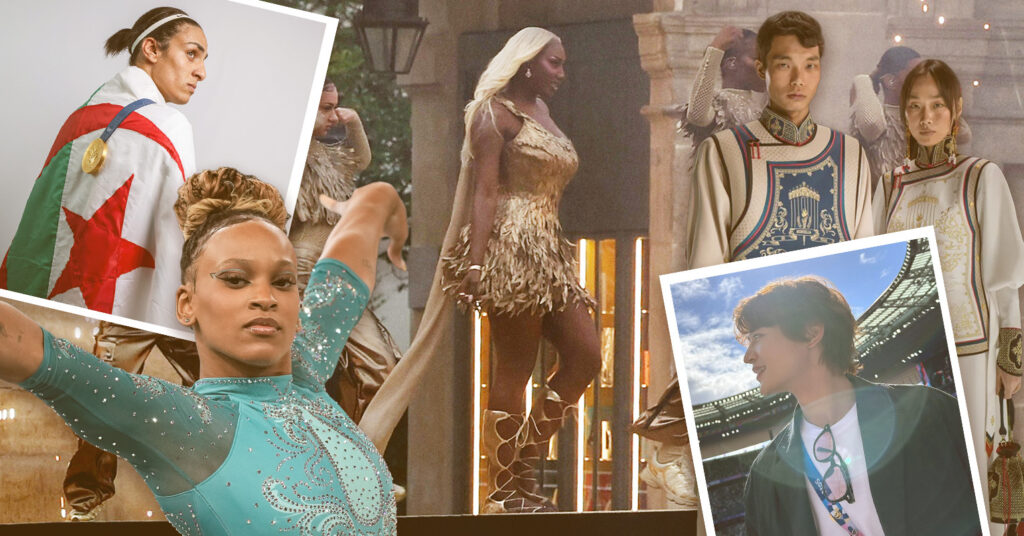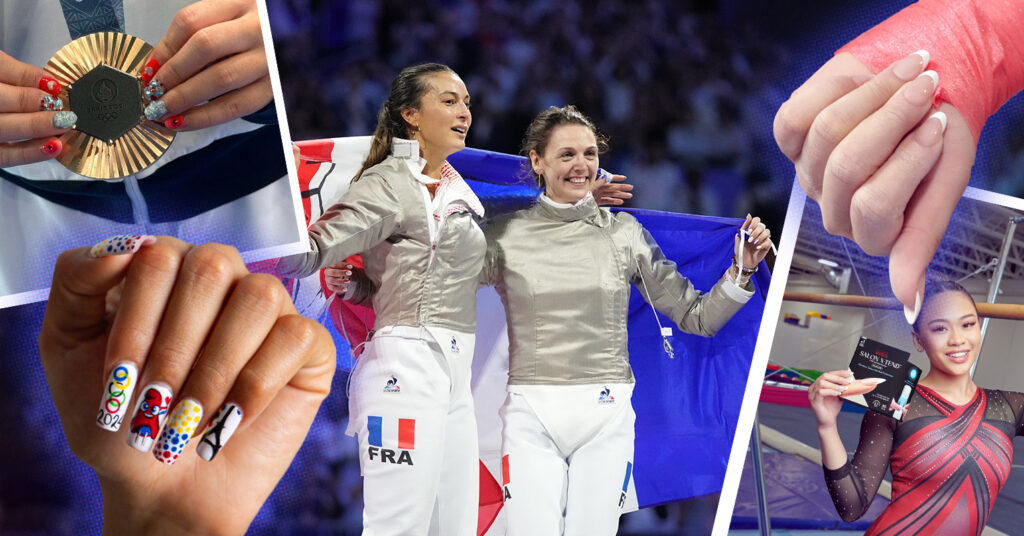Chasing Gold or Loyalty: AAPI Athletes at the Olympics

With an ode to France and an homage to Los Angeles, the Paris 2024 Summer Olympic Games have officially come to an end. Throughout two weeks of fanfare of celebration, multiple Asian athletes achieved historic breakthroughs and dominated social media. Carlos Yulo became the Philippines’ first male athlete to win Olympic gold and China’s Zheng Qinwen claimed gold in women’s singles in tennis — the first Asian athlete to do so. Though most athletes can celebrate their wins and achievements backed by their nations and cultures, some find dissonance with their flags and intersectional identities.
Below, EnVi explores the nuances of the historical controversies Asian Olympians have faced. In particular, we look at how these harsh incidents should serve as constant reminders of how we treat these young athletes.
Dragon Gold Dreams
To everyone’s surprise, the highly-anticipated winner claims silver for women’s figure skating at the 1998 Winter Olympics. Her teammate claims gold instead, so the same anthem sounds during the award ceremony. As she proudly accepts her silver medal, it nestles beside her gold dragon pendant — a gift from her Taiwanese grandmother and a charm she always wears during competitions.
The girl is Michelle Kwan, one of the most decorated American ice skaters in United States history. It is a joyous moment — two more medals for the United States — that soon turned sour when news site MSNBC published an article titled “American beats out Kwan.”
Kwan’s alienation from her nationality caused widespread anger and was quickly apologized for, but it would happen again. In 2002, The Seattle Times committed a similar mistake with the headline “American outshines Kwan, Slutskaya in skating surprise.” Another apology followed, but it was a harsh reminder of previous events and how Asian American communities’ uproar the first time was not enough to warrant more caution from journalists.
Winner Or Traitor
In 2022, Eileen Gu soared into mainstream media with her decision to compete for China in the Beijing Winter Olympics as a freestyle skier. Born in San Francisco and raised between the United States and China, Gu competed for her mother’s home country.
The Olympics’ international stage instantly spotlighted her choice to the world; the attention that media paid to her twists, flips, and tricks above the halfpipe was minuscule compared to newfound “US versus China” debates against a backdrop of growing tension.
“I do corks in an icy, 22-foot, U-shaped snow structure,” Gu said in a New York Times article. “That’s not political. It’s pushing the human limit and it’s connecting people.”
Whether it was out of love for her maternal family’s hometown or because of the overwhelming monetary support she would get from various Chinese sponsorships as one of their top athletes, Gu’s decision to remain neutral between her two hometowns appears to be an inherently political decision that is hard to isolate from her craft. The New York Times article author explicitly digs at Gu and her family’s reluctance to comment on Chinese political issues, calling them a “curated persona.”
Gu went on to win two gold medals and one silver medal for China, becoming the youngest freestyle skiing Olympic champion and first freestyle skier to win three medals at a single Olympics. In response, comments under her social media posts became even more polarized.
“Traitor. Naive. Money.”
“Exceptional. Role model. Pride of the country.”
In a twisted sense, Gu’s excellence becomes a spear or shield depending on the country you stand in. Her excellence is also grounding, what she relies on to validate her decision. Ironically, there is no true winning in this situation.
“When I’m in the U.S., I’m American, but when I’m in China, I’m Chinese,” Gu often says.
It’s a completely different tale when you’re not on the podium.
In the same Olympics, American-born Chinese athlete Zhu Yi, who renounced her American citizenship in 2018, competed for her parents’ home country in the 2022 Olympics as a figure skater. Another athlete choosing China “over” the United States, Yi had an experience completely unlike that of Gu.
First, netizens discovered that Yi was not fluent in Mandarin, whereas Gu spoke fluent, Beijing-accented Chinese. When netizens found out that Yi’s father is a scientist working for one of China’s most prestigious universities, many insinuated that his government ties earned her a spot on the team.
Criticism skyrocketed when Yi fell over during one of her programs on February 7th. That afternoon, the hashtag #ZhuYiFellDown on Weibo garnered over 200 million views. Perhaps unable to withstand the amount of hate, Yi stumbled twice during her free skate event the week after. Skating off the court in tears, Yi soon found herself in another internet uproar. On the other side of the world, some Americans celebrated her fall on Twitter. Meanwhile, most reporting remained carefully neutral and highlighted the struggles Asian American athletes face with belonging.
If Gu was the “people’s princess” and the “ideal daughter,” Yi was the “giant baby” and the “‘nepo kid’ who stole someone else’s spot.”
“Where are you REALLY from?”
Stanley Thangaraj, an anthropologist who looks at intersectionality in sports, told NBC that numerous National Basketball Association players have played for other countries in the Olympics without causing a huge uproar. “When it’s the presence of white folks going and playing elsewhere, it’s helping a country evolve its sport, but when it’s someone who’s Asian American, it shows how precarious our sense of belonging is when we choose another place to represent,” Thangaraj said.
It’s only harder for female-identifying athletes, whose gender adds another layer of complexity that makes them more vulnerable to public scrutiny.
Whether it’s winning a gold medal or just gaining a spot to represent your nation, for athletes of intersectional identities, there is truly no winning in this inherently political celebration of unity.
Yet, the Olympics should be so much more than just a breeding ground for political turmoil.
Now halfway through the Paris Olympics this year, more athletes than ever are competing under different flags amid the backdrop of a tense global climate. Brand new faces or seasoned veterans alike — they have forever left their names in the zenith of human grit and athleticism, and should be celebrated for the pure fact that they are an Olympian.
Interested in seeing more about the Paris 2024 Olympic Games? Check out the standout fashion and beauty moments at the event here.



